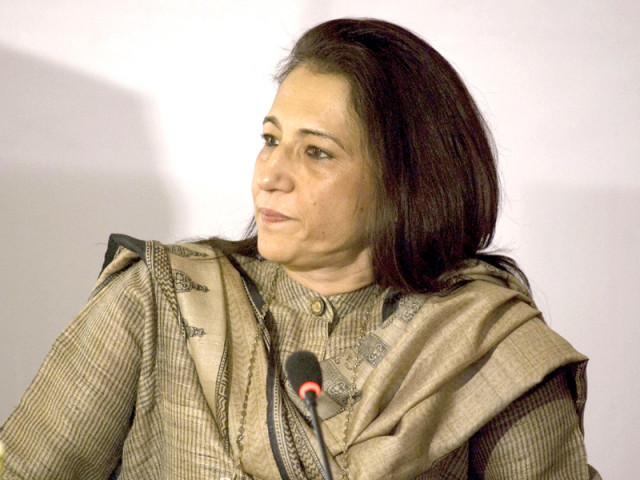History 101: Writing a new Pakistani history
Dr Ayesha Jalal asks students to open up to the plurality of Pakistan’s history.

History 101: Writing a new Pakistani history
Pakistanis must delve into their history with open minds, historian Dr Ayesha Jalal said during a talk on Wednesday.
Speaking to over 200 students at the Forman Christian College in a lecture titled Writing Pakistani History: Problems and Challenges, Dr Jalal said that open minds allow historians to hear and sift through contesting narratives on a subject in history.
‘Voice everyone’
“The task of a historian is to voice everyone,” she said.
A historian cannot be uncomfortable with change, she said.
“Pakistan presents a particularly complex subject matter,” she said.
“When we read historical narratives from outside Punjab, they criticise the Punjabi elements in the establishment and the military,” Dr Jalal said.
Baloch and Sindhis tell their own tale of how the Pakistani state has maltreated them, she said.
Traditional Pakistani history excludes the narrative of marginalised segments in our society, she said.
Historians must broaden the sources they use, Dr Jalal said.
Official archives must be complemented by unofficial records and oral histories, she said.
The tradition of oral history has always played an important part in the recording of history the subcontinent, she said.
“Historians are now using far more creative and imaginative sources than they were just a few years ago,” she said.
‘You can’t bypass history’
Answering a student who asked why people had not gone beyond debates on Pakistan’s history, Dr Jalal said, “You can’t bypass history. The only way to come to terms with one’s history is to understand it.”
“The absence of a historical conscience is more to blame for feeling deprived as a nation,” she said.
Political will is needed to revise the history curriculum in Pakistan, she said.
Without undertaking reform in the official curriculum, she said, “Pakistan is living in delusion.”
Asked about the feeling of exploitation felt by Baloch, she said that an open debate had been started in the country on the issue and more non-Baloch were taking part.
Pakistan’s great paradox:
Pakistan’s ‘great paradox’ is that after being created for a minority, Pakistan has been unable to honour and safeguard its own minorities, Dr Jalal said.
She expressed the view that Pakistan’s fledgling democracy could be stabilised despite its flaws if allowed to complete its course.
Asked why the army was criticised for the civilian government’s failures, she said that it was army intervention in the political system that was criticised.
‘Don’t use religion to discriminate’
“We need to decide whether religion is a matter of personal faith or an identity,” Dr Jalal said.
“It is an integral part of people’s lives but it should not be used to discriminate against people of different faiths,” she said.
A great disservice to Islam has been done by allowing it to be used for discrimination, she said.
Speaking about discrimination against Ahmadis, she said that while the state has ostracised them, it cannot deny them the right to life.
“The debate on Ahmedis is not a theological debate but a debate on equal citizenship for all.”
She said that the greatest challenge we have is to create a society willing to extend equal rights to all its citizens, regardless of religion.
Published in The Express Tribune, May 17th, 2012.



















COMMENTS
Comments are moderated and generally will be posted if they are on-topic and not abusive.
For more information, please see our Comments FAQ